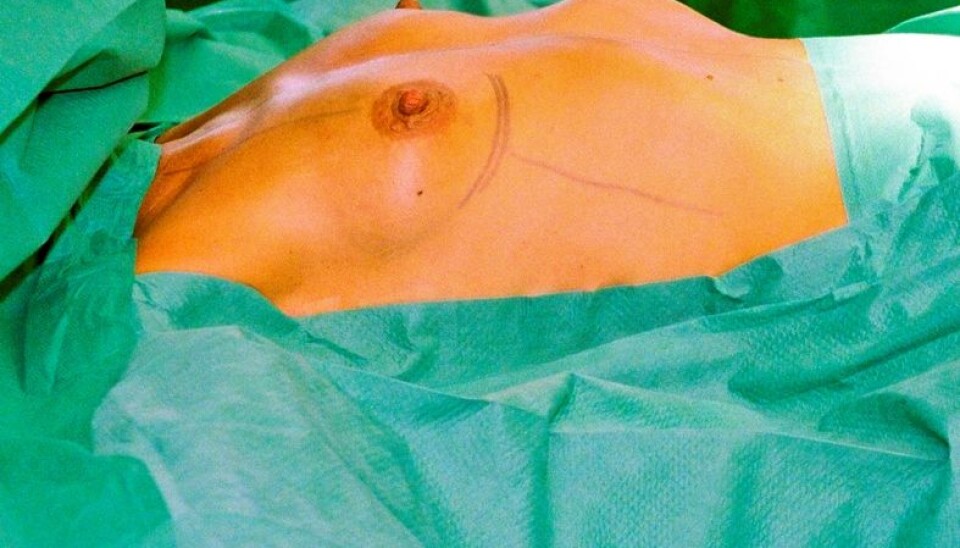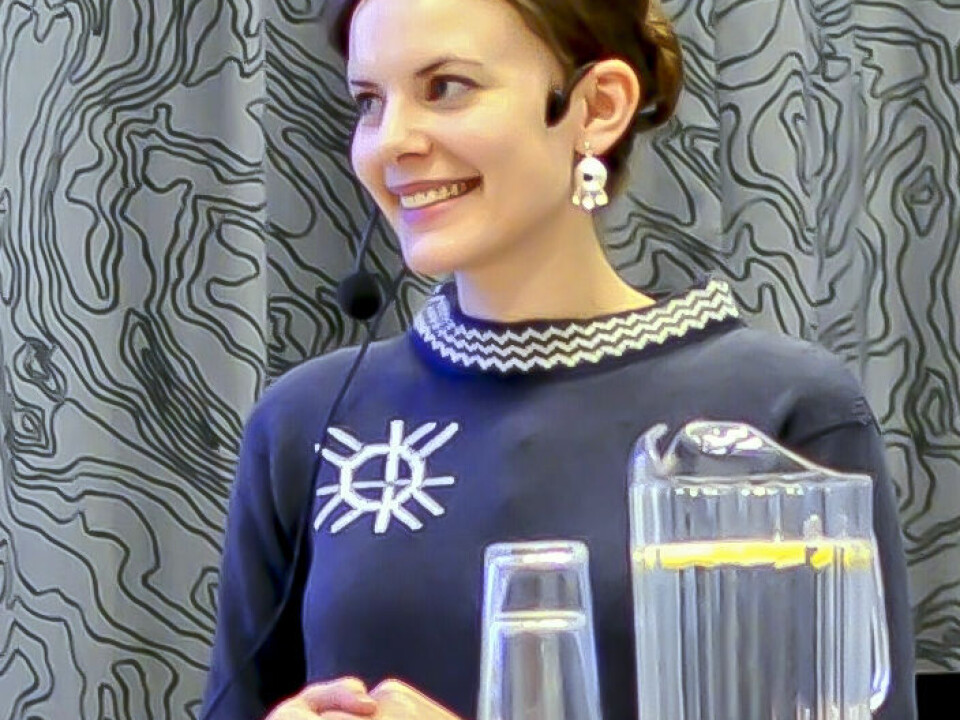An article from University of Tromsø – The Arctic University of Norway

Why women want plastic surgery
Education, social status, mental health and childhood events are factors which can be used to predict which women consider cosmetic surgery.
Denne artikkelen er over ti år gammel og kan inneholde utdatert informasjon.
Half of all young women in northern Norway are open to having cosmetic surgery.
“I am a bit surprised that so many people would be willing to have surgery,” says Iiná Márjá Jávo at the Faculty of Health Sciences, University of Tromsø.
She recently completed a PhD that examined women’s desire to improve their appearance. Her research results are startling, because it turns out that 49 percent of the women who participated in the study could actually imagine undergoing cosmetic surgery, while 3,4 percent of the women had already undergone this kind of operation.
Who wants to change the way they look?
Jávo believes the interest in cosmetic surgery may have more complex reasons beyond the desire to change one’s appearance.

“I especially wanted to identify the psychological and social factors that could be associated with one’s interest in undergoing cosmetic surgery,” says Jávo.
She sent a comprehensive questionnaire to 3500 women aged 18 to 35 years who live in Norway’s three most northerly counties of Nordland, Troms and Finnmark. Fully 1862 women responded to the survey. From these responses, Jávo could see that factors such as lower education, poorer body image and “body dysmorphic disorder”-like symptoms could be used to predict which women would consider cosmetic surgery.
“We also saw that women who had been bullied about their appearance wanted some kind of intervention,” she said.
Her analysis shows that a surgical tummy tuck was particularly attractive to women who had borne children.
Most want liposuction
Women were most eager to change their breasts and body fat. As many as 25 percent wanted liposuction, 15 percent wanted breast enlargements and 7 percent would change their nose.
“We saw psychological factors behind all three of the most popular procedures. Twenty percent of women in the study could be classified as having eating disorders, and more than half of these women wanted liposuction,” explains Jávo.
This figure is almost three times as high as for women without eating disorders, where only 18 percent said they wanted liposuction.
Jávo’s doctorate shows for the first time in Norway a link between eating disorders and liposuction. Women who took the survey had to answer questions about how satisfied they were with their eating habits. They had to answer questions about whether they felt guilty or not when they ate, whether they ate for emotional reasons, whether or not they felt too fat, or if they felt they had to control their food intake with strict diets.
“If you have an eating disorder, you can’t solve it using liposuction. But it is worrying that so many people want liposuction anyway,” says Jávo.
Is life better after surgery?
Iiná Márjá Jávo herself is 28 years old and a medical doctor who chose to pursue research at the UiT’s Faculty of Health Sciences. When she had to choose a research project in 2004, she found it easy to choose the topic of cosmetic surgery.
“The reason was the reality show ‘Extreme Makeovers’, where random people receive extensive makeovers in Hollywood. I was especially interested in one of the participants who, having had several beauty operations, said: ‘Now it feels like all my burdens are gone!’ I found myself sitting there, wondering if that really could be. Do all of our problems disappear if we just change the way we look?” she said.
“My results show that those who want surgical intervention, such as breast enlargement, have an increased risk of suicide and are often depressed. Another important factor was that women who wanted to have a better relationship with their parents, especially their father, would consider surgery.”
Morbid perfectionism
Since plastic surgery is now much more widely accepted, Jávo’s research shows that women can be easily tempted by the option and may be encouraged to undergo the surgery. Society’s focus on appearance is increasing, which in this context experts find worrisome.
Associate Professor Gunn Pettersen at the University of Tromsø has conducted research on eating disorders for many years. She sees that young people can be preoccupied with their bodies, and often have unrealistic and often unhealthy body ideals. To illustrate this, she is now working on a study of people's relationship to perfectionism.
“Society today has a strong focus on appearance and perfectionism. Sometimes it can be good to focus on those who always do their best, but perfectionism can go on to become morbid and destructive,” Pettersen says.
































